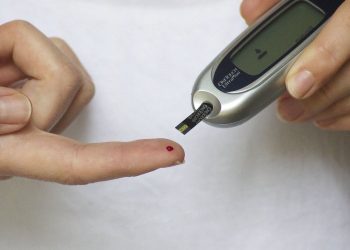UPF Lawsuit: Type 2 Diabetes & Fatty Liver Disease Due to Consumption of Ultra Processed Foods (UPFs).
If you or your child consumed a significant amount of ultra processed foods and were then diagnosed with Type-2 Diabetes or Fatty Liver Disease (Steatohepatitis) ...
Read More →
Depo-Provera Lawsuit
Important Information Regarding Depo-Provera Meningioma Lawsuits A recent study conducted by researchers at the National Agency for Medicines and Health Products Safety in France, and ...
Read More →
Suboxone Tooth Decay Lawsuit
We are no longer accepting claims due to the statute of limitations. Suboxone Tooth Decay Lawsuit Suboxone lawsuits claim that patients who were prescribed Suboxone ...
Read More →
Ozempic, Wegovy, and Rybelsus Stomach Paralysis (Gastroparesis) Lawsuit
Ozempic, Wegovy, and Rybelsus Stomach Paralysis (Gastroparesis) Lawsuit Overview: The FDA mandates that drug manufacturers provide comprehensive labeling, including potential risks and side effects. If ...
Read More →
PFAS Injuries
About PFAS: PFAS is a general term that refers to thousands of chemicals that have been linked to severe illnesses, such as cancer. Due to ...
Read More →
Tepezza Lawsuit Attorney Cleveland
Tepezza Lawsuit Attorney Cleveland Tepezza Hearing Loss Lawsuit & Tinnitus (Teprotumumab Hearing Loss) Cases If you or a loved one were treated with Tepezza for ...
Read More →
Hair Relaxer Lawsuit
Hair Relaxer Lawsuit Uterine Cancer, Endometrial Cancer and Ovarian Cancer Tied to Chemical Hair Products The NIEHS (National Institute of Environmental Health Sciences) announced the ...
Read More →
Attorney For Camp Lejeune Lawsuit
On August 10th, 2022, the PACT ACT (and subsequently the Camp Lejeune Justice Act, CLJA) was signed into effect. Per the CLJA, potential claimants had ...
Read More →
Cleveland CPAP Lawyer
Cleveland CPAP Lawyer Philips Respironics C-PAP, BiPAP and Ventilator Recall It’s estimated that 50 to 70 million Americans have sleep and breathing disorders. Many, like ...
Read More →
Paraquat Class Action Attorney Cleveland
Paraquat Class Action Attorney Cleveland Paraquat Lawsuits The herbicide Paraquat is the deadliest weed killer around. This hazardous chemical, also known as Gramaxone, is recognized ...
Read More →
Zofran
Zofran Birth Injury Lawsuits Did your doctor prescribe Zofran or the generic prescription drug ondansetron during your pregnancy to combat nausea and vomiting? Was your ...
Read More →
Yaz, Yasmin, Ocella Injury Attorney
Yaz, Yasmin, Ocella Injury Attorney Ocella, Yaz and Yasmin If you or someone you know has taken the pharmaceutical drugs Yaz, Yasmin or Ocella and ...
Read More →
Elmiron Class Action Attorney: Cleveland
Elmiron Class Action Attorney: Cleveland Have You Taken the Medication Elmiron and Now Suffer with Vision Problems? You are Not Alone! The prescription drug Elmiron, ...
Read More →
Actos Injury Lawyer
Actos Injury Lawyer Were you prescribed the drug Actos for type 2 diabetes and were later diagnosed with bladder cancer? You may be entitled to ...
Read More →
Pharmaceutical Injury Attorney: Tim Misny
Pharmaceutical Injury Attorney: Tim Misny For more than 40 years I’ve fought for my clients against the most powerful pharmaceutical companies who sold dangerous drugs, ...
Read More →
Zantac Recall
We are no longer accepting Zantac claims. Zantac Class Action Lawyer: Tim Misny Zantac Recall The Food and Drug Administration (FDA) reported that some heartburn ...
Read More →
Talc Powder Cancer Attorney: Tim Misny
Talc Powder Cancer Attorney: Tim Misny Millions of men and women have used talcum powder for personal hygiene for years. Cancer usually results after long-term ...
Read More →
Roundup Weed Killer Lawsuit: Tim Misny
Roundup Weed Killer Lawsuit: Tim Misny Roundup is a popular weed killer (herbicide), used by millions of people world-wide. Professional landscapers, farmers & homeowners alike ...
Read More →
Asbestos Cancer Attorney
Asbestos Cancer Attorney If you or a family member were exposed to asbestos in the workplace and have been diagnosed with cancer, you have the ...
Read More →
Cleveland Mesothelioma Lawyer
Cleveland Mesothelioma Lawyer Were you exposed to asbestos while on the job, and were then diagnosed with mesothelioma or other type of cancer? I have ...
Read More →




















